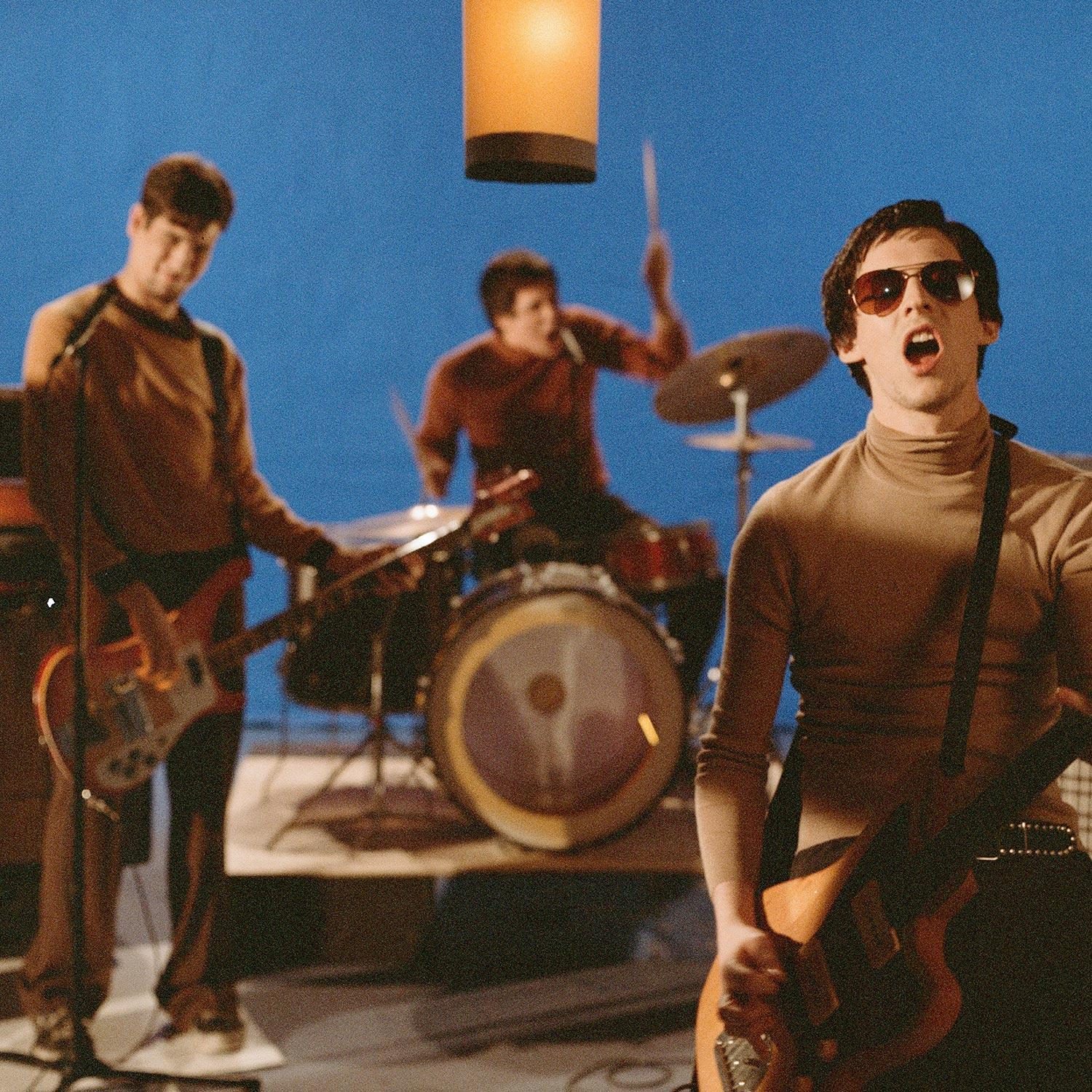Biography
Fuelled by junk cereal, fluorescent Pop Tarts and early 90s francophone punk, Les Marmottes Aplaties were born somewhere between fields of chemically engineered corn on the outskirts of Saint-Jean-sur-Richelieu. As their garage punk tunes grew sharper with each new album, Les Marmottes never lost the kinetic energy and derisive spirit already present in the haphazard, goofy demos from their earliest beginnings. 1001 chansons pour agrémenter vos repas (1996), Épisode sanglant (1999) and Décadents (2002) were milestones on an absurd, unpretentious punk odyssey that lasted until the band’s sudden breakup in 2004 (before a vinyl reissue of the band’s tree albums in 2018). With their huge cult following in the Montreal underground scene, Les Marmottes left a legacy of daffy, boisterous punk songs that recently reissued on three vinyl records, augmented with a digital album of unreleased tracks.
From the moment they first got together in 1994 until they fizzled out in 2004, Les Marmottes Aplaties freed Quebec rock/punk/alternative music from its inhibitions. And they did so inadvertently, without being overly self-conscious about it, while remaining 100% authentic and true to themselves. After several demos, three albums, some videos and many concerts throughout the province and even in Europe, Les Marmottes succeeded in carving out a place for themselves while trying their best not to seem too serious. Their ridiculous appearances went hand in hand with their songs: there was no pretense other than having fun.
With songs like “Papa,” “Les scouts,” “Les pas fins,” “Bonjour, je viens du Texas,” “Je bave” and “Plaisir sur la plage” as well as tales of a golfer’s revenge, bacon, a lunch box, and an ashtray, Les Marmottes Aplaties’ cockamamie universe teems with daffy songs and absurd stories but is undergirded by a youthful garage punk energy and simple yet catchy melodies.
Do-it-yourself
Unknowingly adhering to punk’s DIY tenets—grab a guitar, get some drums and figure out how to make some noise and annoy your neighbours—Bruno Lamoureux and Martin Lussier began making a racket in their parents’ basements at age 14 and then in a colourful daycare room decorated with children’s toys and drawings. You can’t make this stuff up! Fuelled by junk cereal, fluorescent Pop Tarts and, above all, the era’s wildest francophone punk groups, the duo produced some demos that they had the audacity to send to a few community and university radio stations in Montreal. A DJ thought their music was cool and invited them on her show, and just like that, they were stuck with a band name they had never considered keeping, and, what was worse, were forced to continue their endeavour.
Les Marmottes went from being a duo to a power trio with the addition of bassist Dany Beauregard in 1994. A year later, they recorded 1001 chansons pour agrémenter vos repas. Dany left, and they welcomed Sébastien Goyette. The album appeared in 1996, worked its way up the charts of underground radio stations and made it all the way to public radio. With the FrancoFolies de Montréal in 1997, concerts in Belgium and a victory in the Cégep Rock contest that same year, the list of concerts grew along with the buzz about the band.
2nd episode
Taking advantage of the momentum, the trio locked themselves up in Howard Bilerman’s Mom & Pops studio (Arcade Fire, Leonard Cohen, Cœur de pirate) to make their second album, Épisode sanglant. Without losing their derisive spirit and sense of humour, in 1999, Les Marmottes put together a much more cohesive and dynamic album, which showed how much progress they had made in so little time. Though the group insisted that they not be taken too seriously, from then on, they did things seriously. Videos for the tracks “Détruire” and “Bagnole” were in regular rotation on the airwaves of MusiquePlus and greatly contributed to increasing their visibility. The two videos earned nominations for Best French Video at the MuchMusic Video Awards.
Big bang
Nonstop gigs ensued, and the group was again featured in the FrancoFolies de Montréal in 2000. A few months later, they decided to step out of the spotlight for a while and work on their third album. This time, the band called on producer, musician, and apostle of noise Jonathan Cummins (Doughboys, Bionic). The results met expectations. Released in June 2002, the twelve tracks on Décadents had a howling, much heavier sound, which also carried over on stage, with the addition of a second guitarist, Philip Goyette, and a new drummer, Charles Comeau.
Flattened
In theory, everything had fallen into place for Les Marmottes to shift into high gear, but the band broke up in 2004, worn out from an “overly serious” conflict with their record label. Unwittingly, Les Marmottes Aplaties were a real débilo-punk tsunami, a much-needed sendup of a scene that often took itself too seriously. The band left a legacy of three noisy, fun-filled albums, which were as fresh as they were pivotal, but which were unfortunately discontinued—until very recently. In 2018, the marmottes come back to life through the reissue of the band’s three CDs in vinyl versions that have been remastered from the original mixes.


